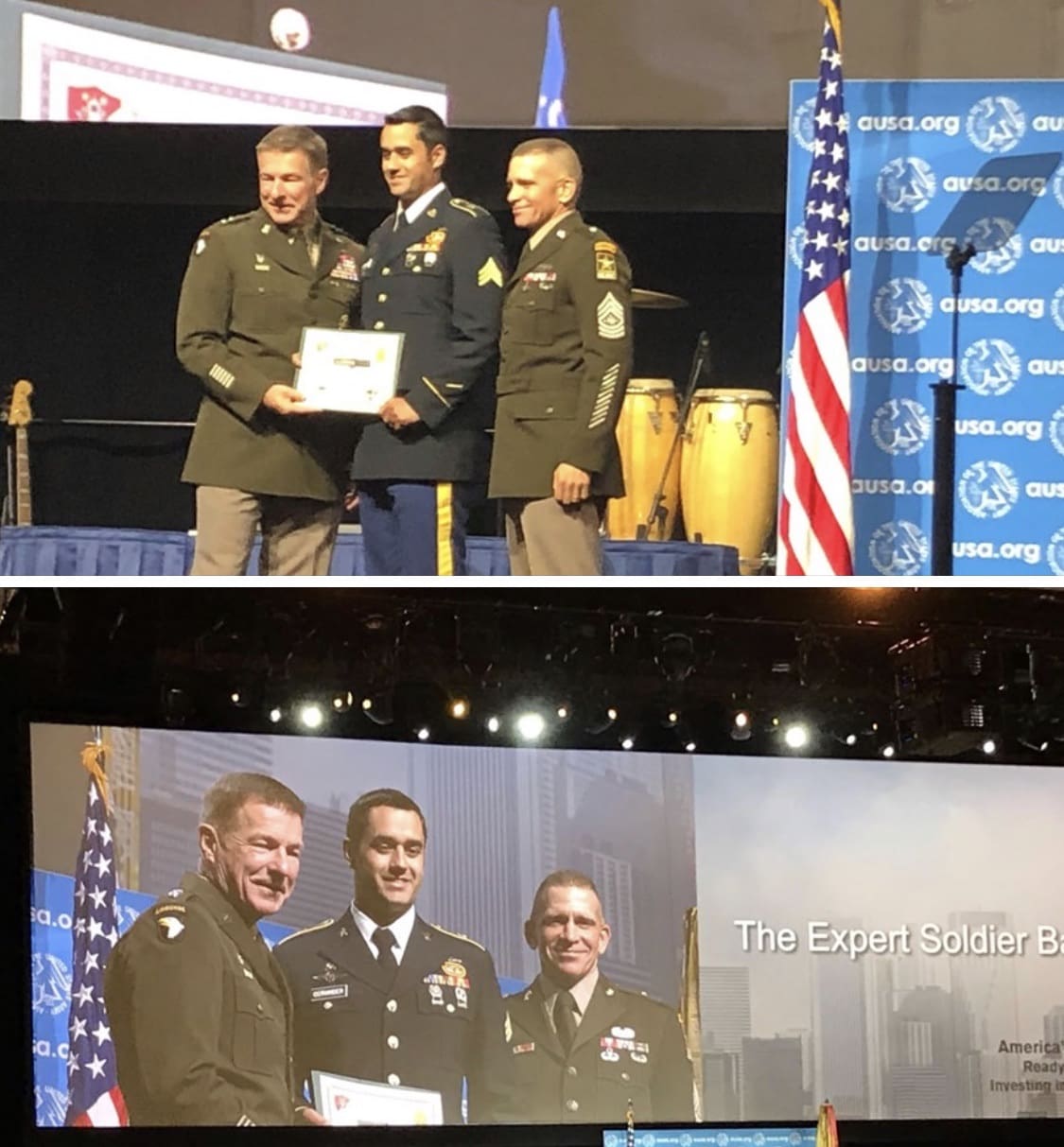WASHINGTON, D.C. — To earn any coveted badge in the U.S. Army, be it the Expert Infantryman’s Badge (EIB) or Expert Field Medic Badge (EFMB), is to be among America’s most proficient Soldiers.

Sgt. Michael Ostrander, a small arms and towed artillery repairer assigned to 1st Special Forces Group, Joint Base Lewis-McChord, and native of Casnovia, Michigan, is one of the first Soldiers in the Army to earn the new Expert Soldier Badge (ESB).
“To hear that the ESB was actually going to be a thing, I was surprised,” Ostrander said. “Knowing I was one of the first Soldiers to earn it, I was excited to be a part of a great thing and honored to bring this great organization the credit it deserves,” he added.
Ostrander is one of the first 11 Soldiers to be awarded the ESB during the Association of the United States Army (AUSA) annual meeting, October 15, 2019, at the Walter E. Washington Convention Center in Washington, D.C.
The standards set to earn the Army’s new Expert Soldier Badge (ESB) are as challenging as the requirements to earn an EIB or EFMB.
Command Sgt. Maj. Edward W. Mitchell, senior enlisted leader at the Center for Initial Military Training, says like the EIB and EFMB, testing for the ESB consists of an Army Combat Fitness Test (ACFT), day and night land navigation, weapons, medical and more than 30 other individual tasks.
“We wanted every Soldier to make sure they understand that they are experts in their field,” Mitchell said. “Achieving the new badge … requires a much higher standard, just like its cousins, which are the EIB and the EFMB” Mitchell added.
Prior to the start of testing, participants underwent a week of intense training to prepare for the challenges they would face during the ESB qualification.
“There was a week of training before the week testing and it was pretty intense and there was also a big book of study material to go along with it,” Ostrander noted. “I learned a lot of medical stuff that I didn’t know before,” he added.
As with any competition, participants have one or more favorite parts.
“My favorite part of this was learning and solidifying the basic Soldier skills that I have forgotten or just never learned,” Ostrander said. “I learned that I’m a lot more capable than I thought.”
Since the ESB can be earned by any Soldier outside of the infantry, medical and special operations career fields, Ostrander suggests that Soldiers “brush up on things they’re rusty on” to be successful during testing.
-USASOC-
By SGT Larry Barnhill, USASOC Public Affairs

